Classical CDs Weekly: Bruckner, Unsuk Chin, Dvořák
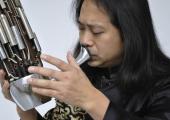
Romantic symphonies from Austria and the Czech Republic, and contemporary concerti from South Korea


It is not often we hear Bruckner’s colossal Eighth Symphony in its longer and far quirkier original version (1887 ed. Nowak) and when we do hear it in either of its two incarnations it invariably stands alone. That Fabio Luisi chose it for his debut with the London Symphony Orchestra was in itself more than a little revealing and the fact that he added Mozart’s 23rd Piano Concerto as an apéritif seemed to suggest that he had something to say about Bruckner’s uneasy quest for the kind of classical perfection that Mozart took for granted.

Can there be a conductor with a clearer and more affirming beat than Mariss Jansons with the Concertgebouw Orchestra when they're at their best? The listener can just marvel at his capacity to work in partnership with this fine orchestra, to underline and reinforce everything they do, to enable them to land cleanly, decisively and unanimously, to introduce new ideas with care, precision and beauty, to treat the end of phrases with respect, love and punctiliousnes.
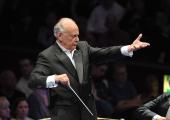
Tradition used to decree that the last Friday Prom would be devoted to worshipping Beethoven’s Choral Symphony. Not so today. Anything deemed serious and big occupies the slot, and if Bruckner’s Eighth Symphony isn’t serious and big, what do you want? A 40-tonne truck?

May I be permitted a rude, opinionated intermezzo between reflections on Vasily Petrenko’s two Oslo Philharmonic Proms, and before Marin Alsop steps up to great expectations for the Last Night?

We had, as presenter James Naughtie so wryly remarked, set aside our mourning weeds for the low-key glamour of celebrating a far from moribund classical recording industry. Movers, shakers and humble BBC Music Magazine contributors all shifted from the airy dining space at the ever-accommodating Kings Place yesterday - I won't forget the mint marshmallow - and descended to woody Hall One for the magazine's 2013 awards.

 Bruckner: Symphony no 7 BBC Scottish Symphony Orchestra/Donald Runnicles (Hyperion)
Bruckner: Symphony no 7 BBC Scottish Symphony Orchestra/Donald Runnicles (Hyperion)
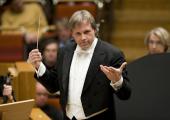
It is considerate of Manchester’s two professional symphony orchestras to have organised their opening Wagner celebration salvoes so that they dovetail so neatly. The BBC Philharmonic opened their season three weeks ago with the Wesendonck Lieder, famously inspired by the composer’s infatuation with Mathilde, the wife of his wealthy sponsor Otto Wesendonck, and featuring those two well-known studies for Tristan und Isolde, "Im Treibhaus" (In the Hothouse) and "Traume" (Dreams).
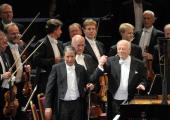
You’ve never seen so many people at a Prom, thousands of them packed into every space of the Albert Hall inside, while outside a 100-metre line of hopefuls queued in vain to stand in a pit where a small cat couldn’t have been added. But then this was a luxury Prom: with the Vienna Philharmonic and two musicians of golden integrity and sensitivity, lifetime members of the high table, the pianist Murray Perahia and the conductor Bernard Haitink playing two works born in Vienna.
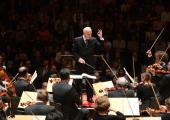
The last night Haitink conducted at the Royal Opera House as musical director the staff wheeled on a moped as a leaving present. Ever since, his conducting has been inextricably linked to that mode of transport in my head. With Haitink, music-making has always seemed to be about getting from A to B in the most dependable, unfussy and often uninspiring way possible. For years, I haven't been able to see the point of him at all.